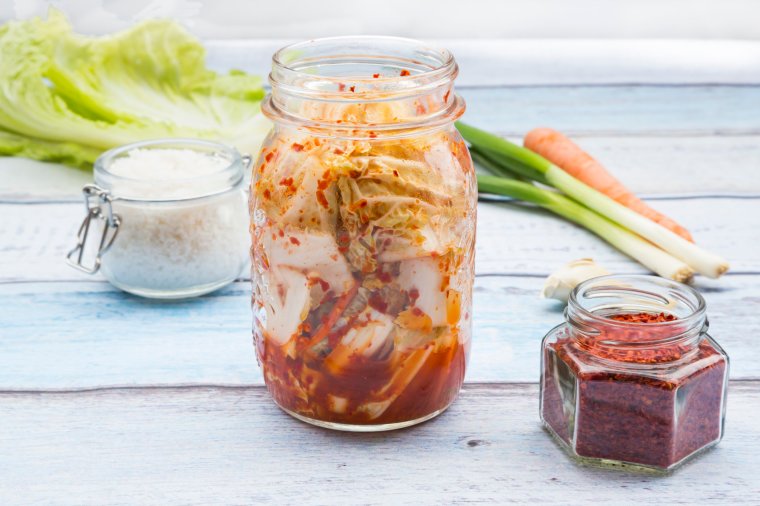Most of us would like to live long, healthy lives. With this in mind, the concept of longevity – and how we can increase our longevity – is gaining traction.
According to figures from the Office for National Statistics (ONS), in 2021 to 2023, the average life expectancy for adults in the UK was 79 years for men and 83 years for women. While recent research found that human longevity was likely to have reached its upper limit, meaning that it’s unlikely for more than 15 per cent of women and 5 per cent of men to live to 100.
But longevity isn’t just about living longer, says Dr Tamsin Lewis, a longevity expert and the founder and medical director of Wellgevity. “It’s about nurturing a life rich in vitality, purpose and well-being,” she says.
“True longevity integrates the physical with the emotional, recognising that how we process and adapt to life’s experiences can shape our health outcomes.”
To understand more about how to increase longevity, as well as how to set yourself up so that your later years aren’t spent dealing with extensive health issues, we spoke to experts about which areas to focus on, and the best techniques to try.
Walk up hills
Any exercise is good. But activity that accelerates your heart rate is particularly beneficial, says Norman Lazarus, author of The Lazarus Strategy: How to Age Well and Wisely, and a professor at the Centre for Human and Applied Physiological Sciences at King’s College London. “Walk at a pace which puts you under a little bit of pressure,” he says. “The best way to do that is to find a hill nearby and walk up it”.
Beyond walking, Lazarus advises doing any kind of physical activity that will get your heart rate up. The key thing is to choose something that you enjoy and will continue to do long-term. “It doesn’t matter what it is, as long as it accelerates your heart rate and you enjoy it. That’s the best way to approach exercise, it shouldn’t be looked at as punishment,” he says.
Lewis agrees that moving your body is crucial. “Movement promotes longevity by reducing chronic inflammation and supporting emotional resilience,” she explains. “When you exercise, endorphins and other feel-good neurotransmitters like dopamine are released, which lower stress and improve mood.
“Exercise also enhances blood flow to the brain, stimulating the production of brain-derived neurotrophic factor (BDNF), a protein that supports the survival of existing neurons and encourages the growth of new ones. This neurogenesis can protect against age-related cognitive decline, making regular physical activity a critical component of long-term health. Even moderate activities like brisk walking have these benefits.”
Eat a balanced diet – but not too much of it
When it comes to food, Lewis advises practising mindful eating and embracing whole, plant-rich foods, such as leafy greens and cruciferous vegetables that contain high levels of antioxidants and B vitamins such as folate.
“These lower oxidative stress and support the synthesis of mood-regulating neurotransmitters such as serotonin,” explains Lewis. “Serotonin is produced largely in the gut and is crucial for emotional well-being.”
She also suggests eating fermented foods such as kimchi, sauerkraut, and kefir to help diversify the gut microbiome.
“A healthy microbiome produces more short-chain fatty acids (SCFAs), such as butyrate, which have anti-inflammatory properties and are essential for maintaining the integrity of the gut lining. An intact gut lining reduces systemic inflammation, indirectly benefiting brain health.”

Also important are omega-3 fatty acids, which are found in things such as flaxseeds, chia seeds, and walnuts, which “help build neuronal membranes and modulate inflammatory pathways”.
Lewis adds: “They’re critical for brain plasticity and reducing neuroinflammation, which can be linked to mood disorders and cognitive decline.”
We might think we need to load up on supplements and vitamins to increase our longevity but according to Norman Lazarus, there’s no need. Instead, he suggests eating a balanced diet, meaning you can get enough nutrients through the food that you’re eating.
The crucial thing is not overeating – even if the food you’re eating is healthy. “Even if you’ve got the perfect diet, you can eat more than you need. I’m not sure that people realise that overeating is bad, whatever you are eating,” he says.
To know if you’re eating too much, it can be helpful to measure your waist to height ratio. For example, if your waist is 80cm and you are 160cm tall, you would calculate your result as: 80 divided by 160, which equals 0.5.
According to the NHS, having a waist to height ratio of 0.5 or higher may mean that you have increased health risks.
“In general, being overweight goes hand in hand with no or little physical activity. The mixture is disastrous. Most of the common diseases – heart attacks, strokes, type 2 diabetes, vascular disease and non-fatty liver disease are linked to eating too much and doing too little physical activity,” says Lazarus.
Prioritise sleep – have a bath before bed
We all know that getting a good night’s sleep is important, but it’s not just about feeling refreshed for the day ahead – it’s a key part of longevity, too. “Establishing rituals to enhance sleep quality influences the body’s circadian rhythm, which regulates hormone release, digestion, and cellular repair,” says Lewis.
For good quality sleep, it’s important to have an evening ritual that sends the right signals to your nervous system. “Dimming lights an hour before bed reduces melatonin suppression. Melatonin is essential for sleep initiation and acts as an antioxidant, protecting neural tissue,” says Lewis. Ditching your phone before bed is a good idea, too. “Avoiding blue light exposure in the evening minimises melatonin disruption, helping you achieve deeper, more restorative sleep cycles.”

Other things that can help are limiting caffeine after midday, avoiding heavy meals before bed, limiting alcohol and having a bath, as this raises your core temperature and then drops it, signalling to the body that it’s time to sleep. And most importantly, be consistent. “A regular sleep schedule stabilises your body’s biological clock,” says Lewis.
Look after your mind – and challenge it
Being mindful doesn’t just mean meditating, says Lewis. “It encompasses being present in life’s simplest moments, whether it’s savouring a meal or having an authentic conversation. It’s about feeling grounded and responsive rather than reactive,” she explains.
This sort of mindfulness can activate the parasympathetic nervous system and reduce the body’s stress response. “Chronic stress leads to prolonged cortisol exposure, which can accelerate cellular ageing by shortening telomeres – the protective caps at the ends of DNA strands. By practising mindfulness and presence, you reduce cortisol levels and foster a state where the body can repair and regenerate, crucial for long-term health. Mindfulness also enhances heart rate variability (HRV), a marker of autonomic nervous system health, which is strongly linked to longevity,” says Lewis.
Also important is deliberately fostering a positive mindset, says Lazarus. “The mind-body relationship is an integrated system that’s extremely important. Don’t restrict yourself when it comes to what you think you can do. For example, thinking: ‘I’m too old to do that’ or ‘I can’t do that anymore’. We’re never too old to do something. The point is to challenge your mind and get yourself into a position where the mind knows the body is capable of things you might not have thought you could do.”

Try writing and somatic therapy
While we might expect that eating well and getting good quality sleep can increase longevity, Lewis says that one of the more surprising findings she’s come across is “the role of emotional processing and therapy in longevity”.
This emotional processing could be things like writing or somatic therapy – an alternative therapy that looks at the connection between the mind and body and aims to release trauma from the body through things like dance, breathwork and meditation. These techniques can “help release stored trauma, reducing the emotional load our bodies carry”, according to Lewis.
“Emotional trauma can dysregulate the autonomic nervous system, keeping the body in a fight-or-flight state which leads to raised levels of stress hormones. Expressive writing provides an outlet for processing and integrating these emotions, reducing physiological stress markers like cortisol,” says Lewis.
“Somatic therapies help the body ‘complete’ the stress cycle, releasing stored tension and improving vagal tone [the activity of the vagus nerve, which is part of the body’s nervous system], which is associated with better emotional regulation and physical health. This process can lower inflammation and support overall resilience.”
Experiment with cold exposure and fasting
According to Lewis, one particularly interesting area when it comes to longevity is hormesis, which “involves exposing the body to low doses of stress to activate repair mechanisms”. These are things like cold exposure or short bursts of fasting, which “challenge the body to grow stronger, much like emotional challenges can strengthen our resilience,” she says.
You don’t have to invest in an ice bath to put these into practice, either. Lewis suggests starting by ending your warm shower by turning the tap to cold for 30-60 seconds, three or four times a week. “This stimulates norepinephrine [a chemical in the body] release, enhancing mood and reducing inflammation,” says Lewis.
Similarly, intermittent fasting a few times a week can be worth trying. Doing this “gives the body a metabolic break, promoting autophagy, the process of clearing out damaged cells,” explains Lewis. “Autophagy helps reduce the risk of chronic diseases and supports metabolic health, which are vital for longevity. Begin with a 12-hour eating window and gradually shorten it if you tolerate it well.”


